The Nature of Life: On Biodiversity and Ecology with Ben Friton at THE REED CENTER
A snow day conversation at The REED Center with Ben Friton, soil ecology and Executive Director for The center in Middletown, Maryland. He discusses the environment, biodiversity, and human interaction with nature. Topics include food forests, cultivating crops, soil health, gift economy, and the repercussions of human actions on ecosystems. Ben also discusses the evolution of plants, their adaptability, and the importance of working in harmony with nature through projects and personal experiences. The conversation emphasizes the need to understand and work with nature for sustainable practices and the balance of ecosystems.
In the enlightening discourse with Ben, get a bird’s eye view of the intricate tapestry of biodiversity and ecology unfolded. Here is the essence distilled:
Biodiversity Defined:
Biodiversity encompasses all life forms on Earth, from microscopic microbes to towering trees.
It transcends mere species count; it’s the symphony of genes, ecosystems, and cultural processes that sustain our planet.
Biocultural connections recognize humans as integral to this web, shaping and being shaped by the natural world.
Why Biodiversity Matters:
Utilitarian Values: Biodiversity provides essentials—food, medicine, and ecosystem services like pollination and climate regulation.
Intrinsic Value: Beyond utility, biodiversity possesses inherent worth—an inalienable right to exist.
Relational Values: Our connections with nature shape our well-being and sense of responsibility.
Threats and the Anthropocene:
Human dominance has led to rapid ecosystem changes and staggering biodiversity loss.
We inhabit the Anthropocene, a time when our actions profoundly impact the planet.
An aerial view of the “Tree of Life” landscape.
The Tree of Life is a symbolic representation of many cultures and religions. It depicts the interconnectedness of all living things and their descent from a single source. The tree's roots symbolize the foundation or source of life, the trunk represents the continuity of life, and the branches represent the diversification of life forms.
The Tree of Life at Morning View Food Forest is a budding project with a profound purpose. Its mission is to create a self-sustaining, ecologically restorative system that not only heals the land but also nurtures the spirits of all who engage with it. Here are the key points:
Vision and Purpose:
The Tree of Life aims to reconnect humanity with the brilliance of nature.
It seeks to repair the holistic connection between humans and their environment.
The project strives to foster a harmonious relationship between people and the natural world through research, community engagement, and ecosystem development.
Early Stages:
Currently in its infancy, the Tree of Life relies on volunteers and donors for support.
The goal is to establish a thriving ecosystem that sustains itself over time.
Your Role:
The success of this vision depends on YOU! Volunteers and contributors are essential to bringing the Tree of Life to fruition.
Participating makes you part of a movement that heals the land and uplifts the human spirit.
The Tree of Life embodies hope, restoration, and interconnectedness—a living testament to our shared responsibility for the Earth and its inhabitants. Learn more at the REED Center Tree of Life informational page.
The REED Center develops ecologically beneficial agricultural systems and designs natural landscapes both at the center and worldwide. Each section of the farm has different edible and medicinal plants are staged so that reach their peak for use at different months of the year so each section has food and medicine available March through November.
Ben Friton explaining the complex layers of the food forests that they have constructed at the center
A view of the Tree of Life on Ben’s phone.
Bradford pears, an invasive species, are used by the Reed Center to graft more desirable pears onto them. The grafted pear using the Bradford as its host grows exponentially, producing food within two years. A snow-covered bird nest is in the upper left of the photo.
A Bradford pear tree showing a pear grafting
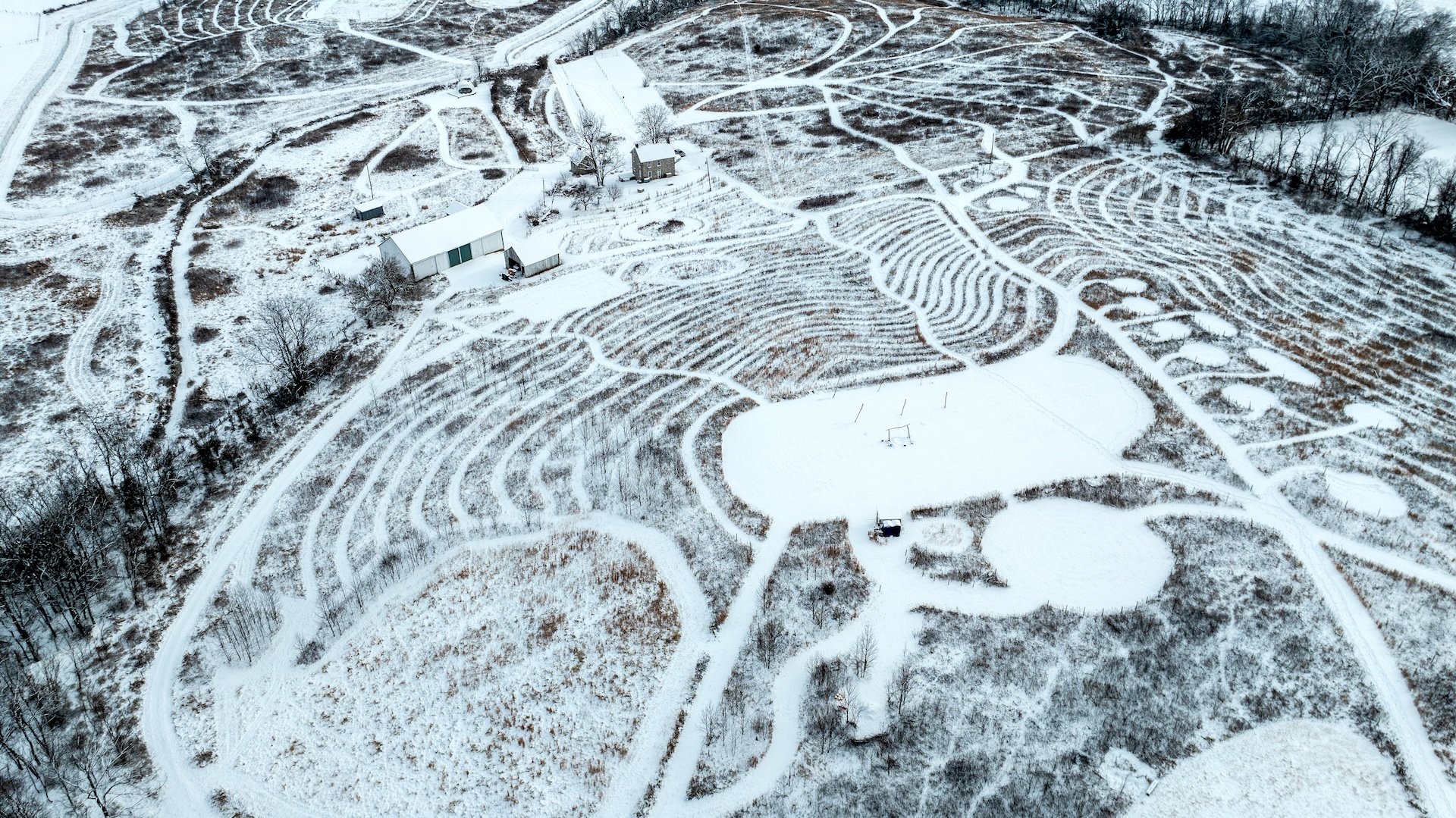
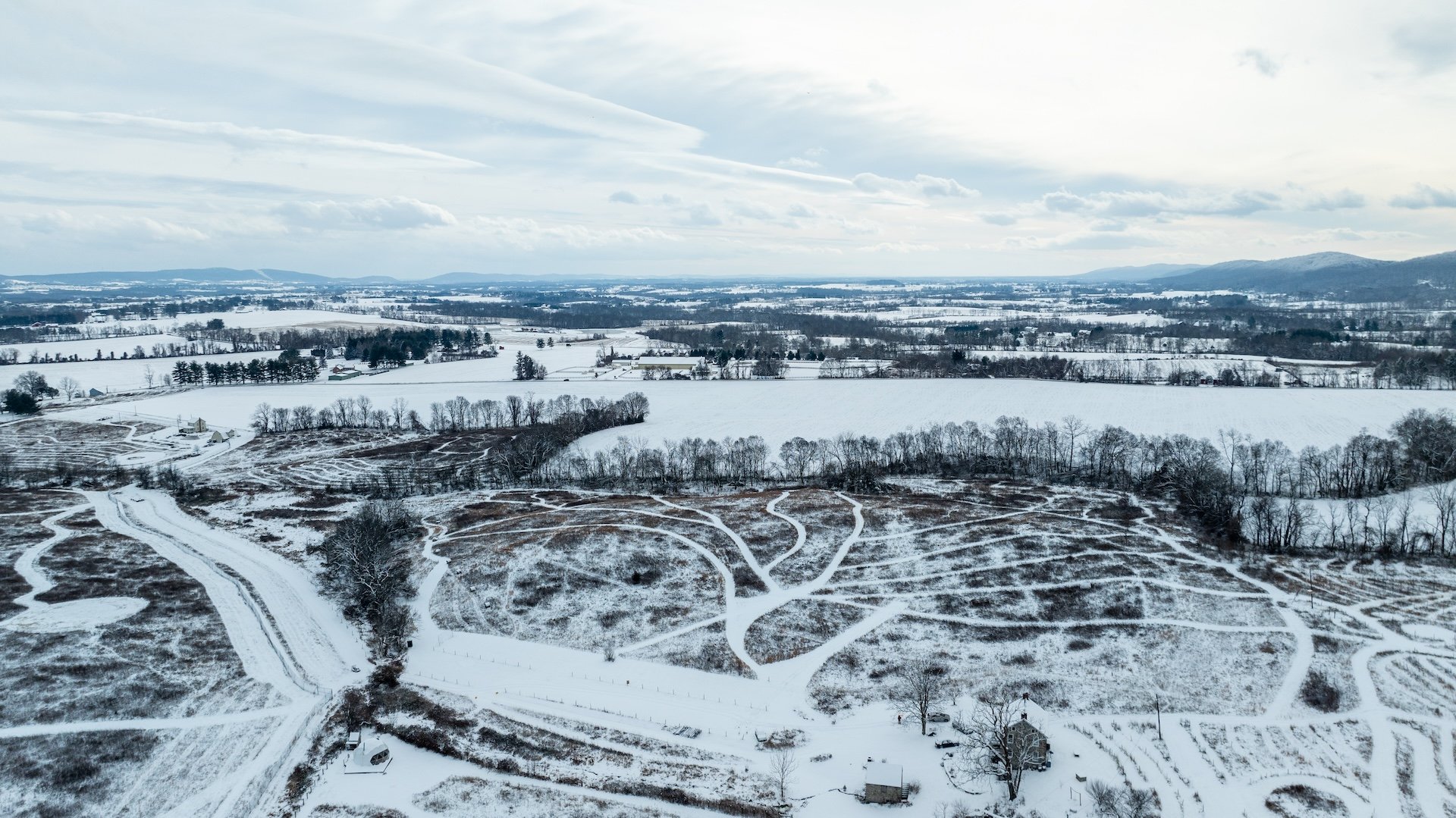
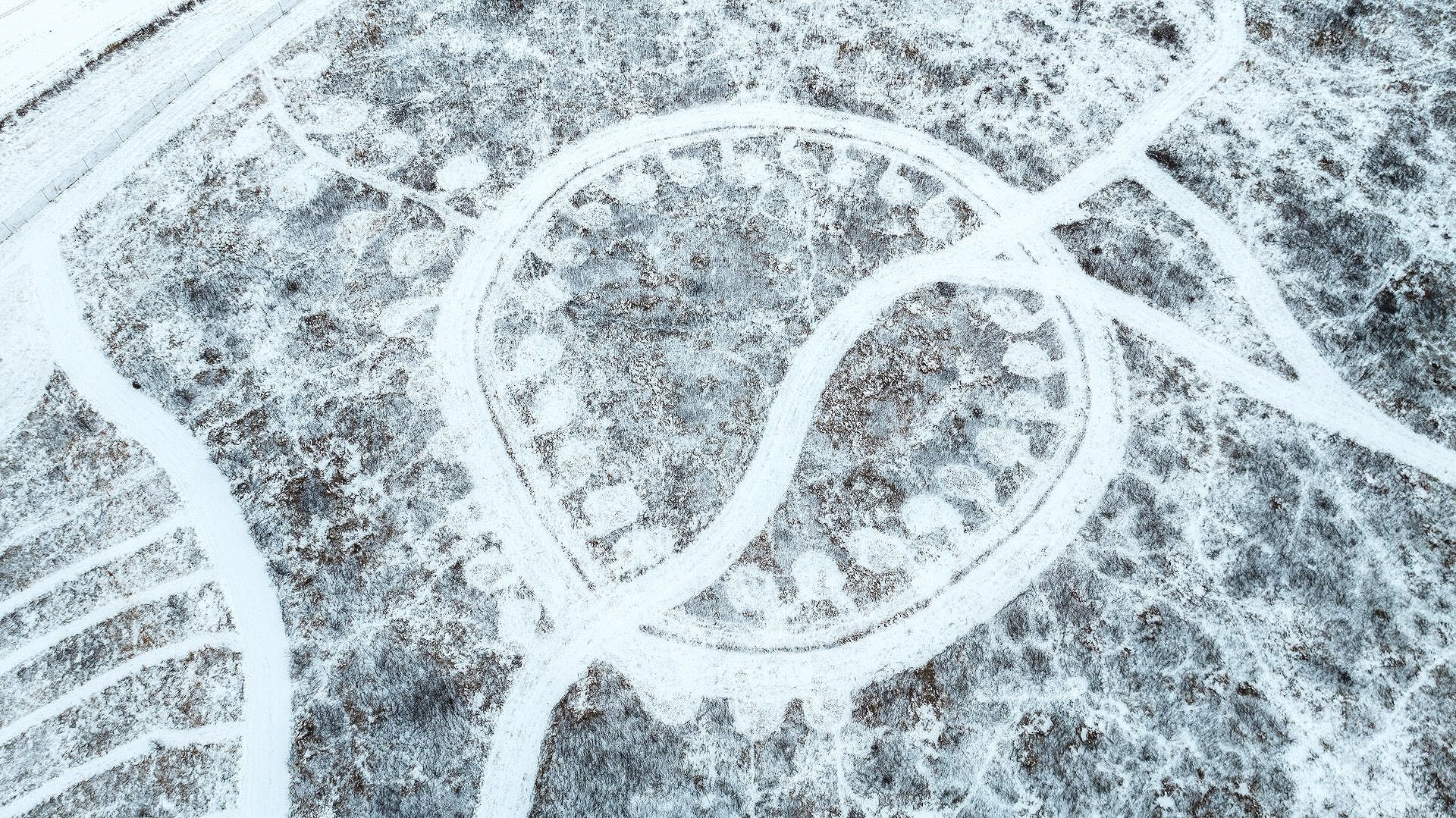
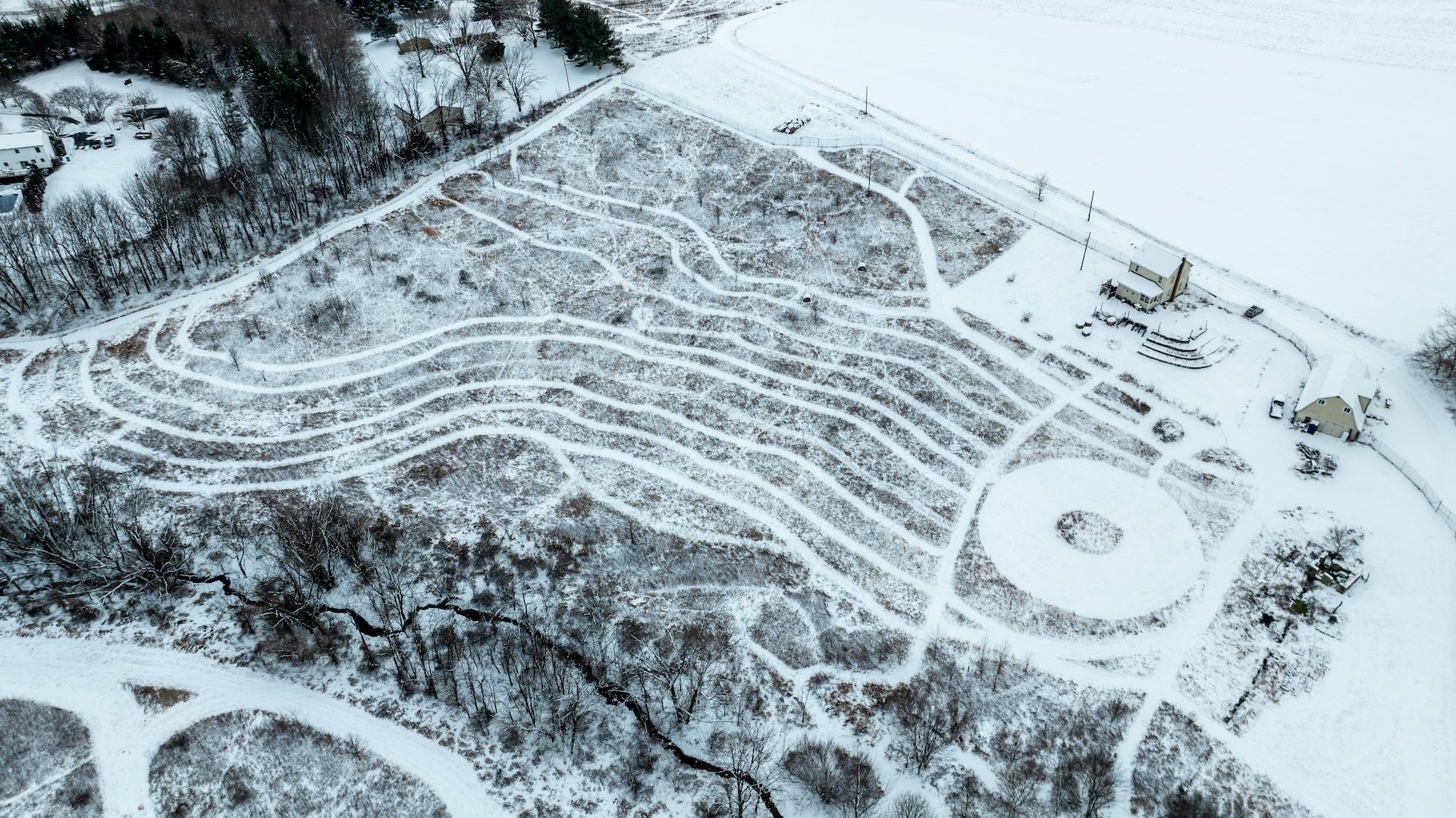
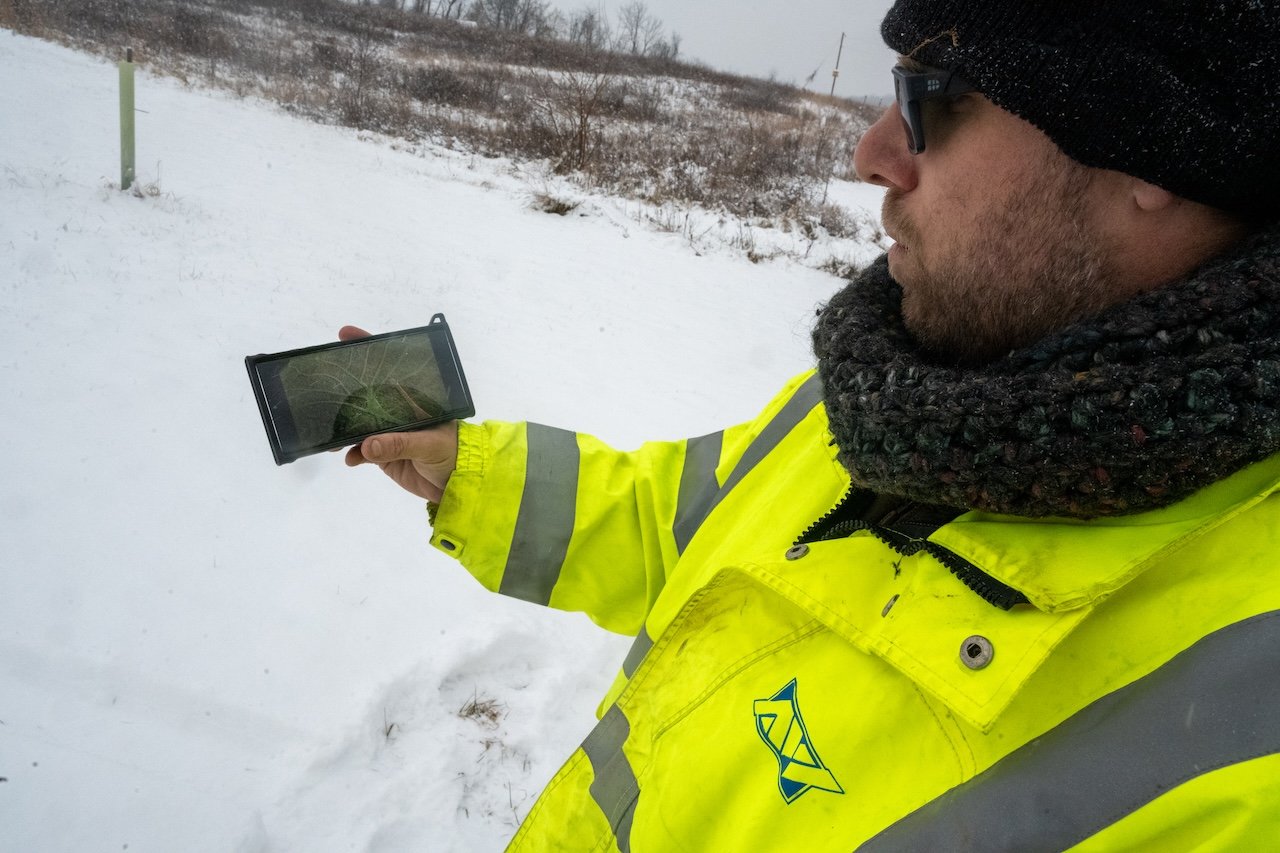
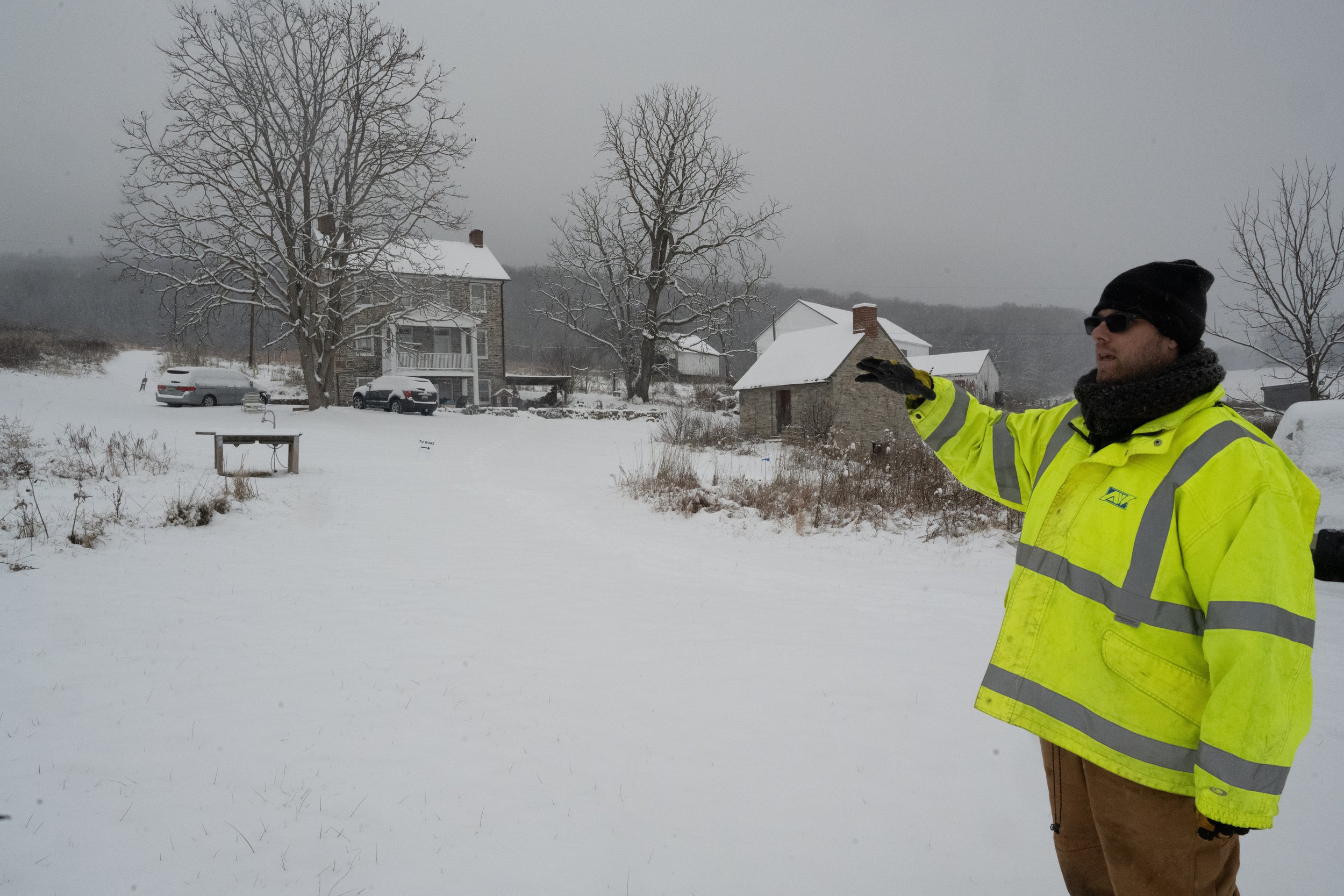
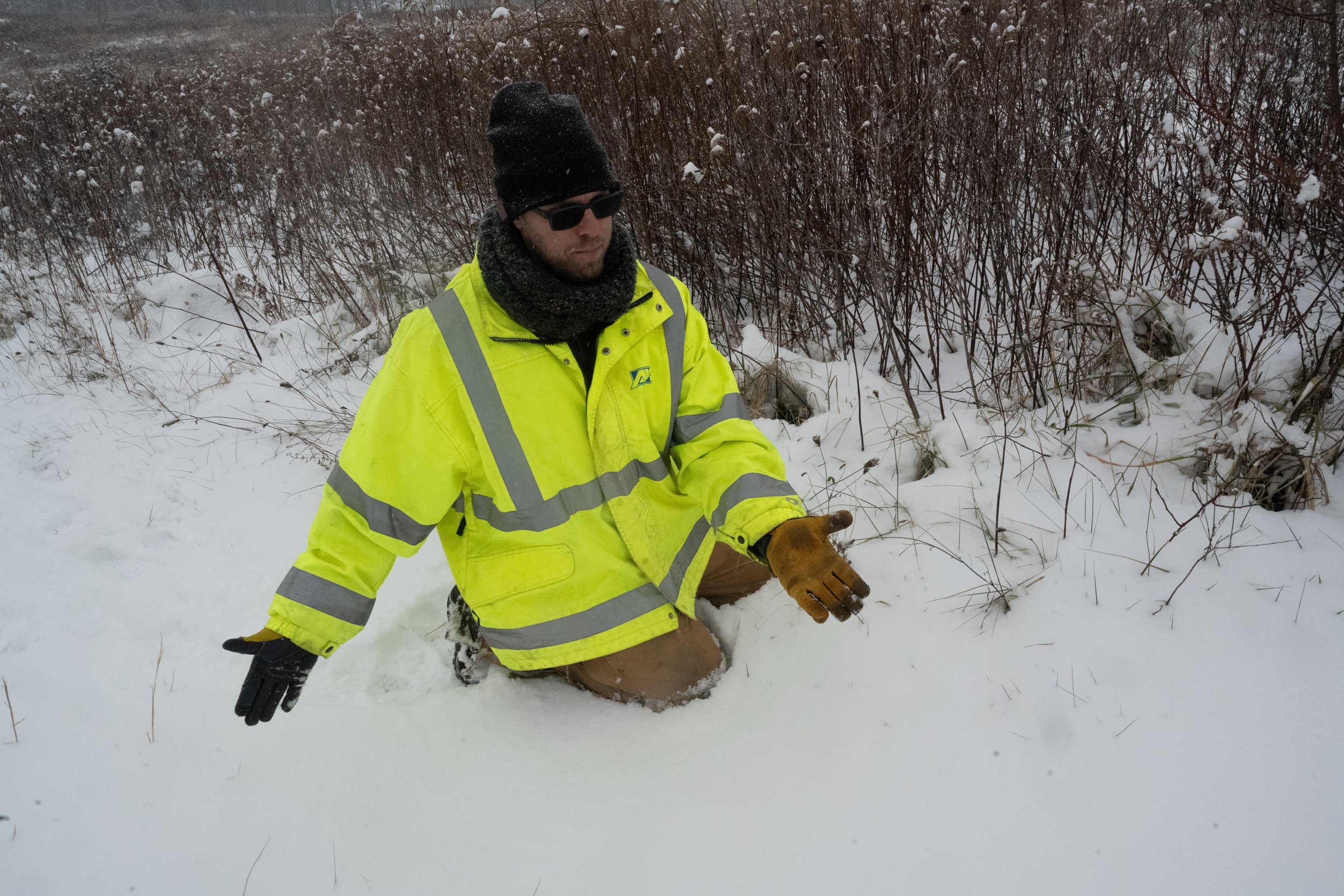
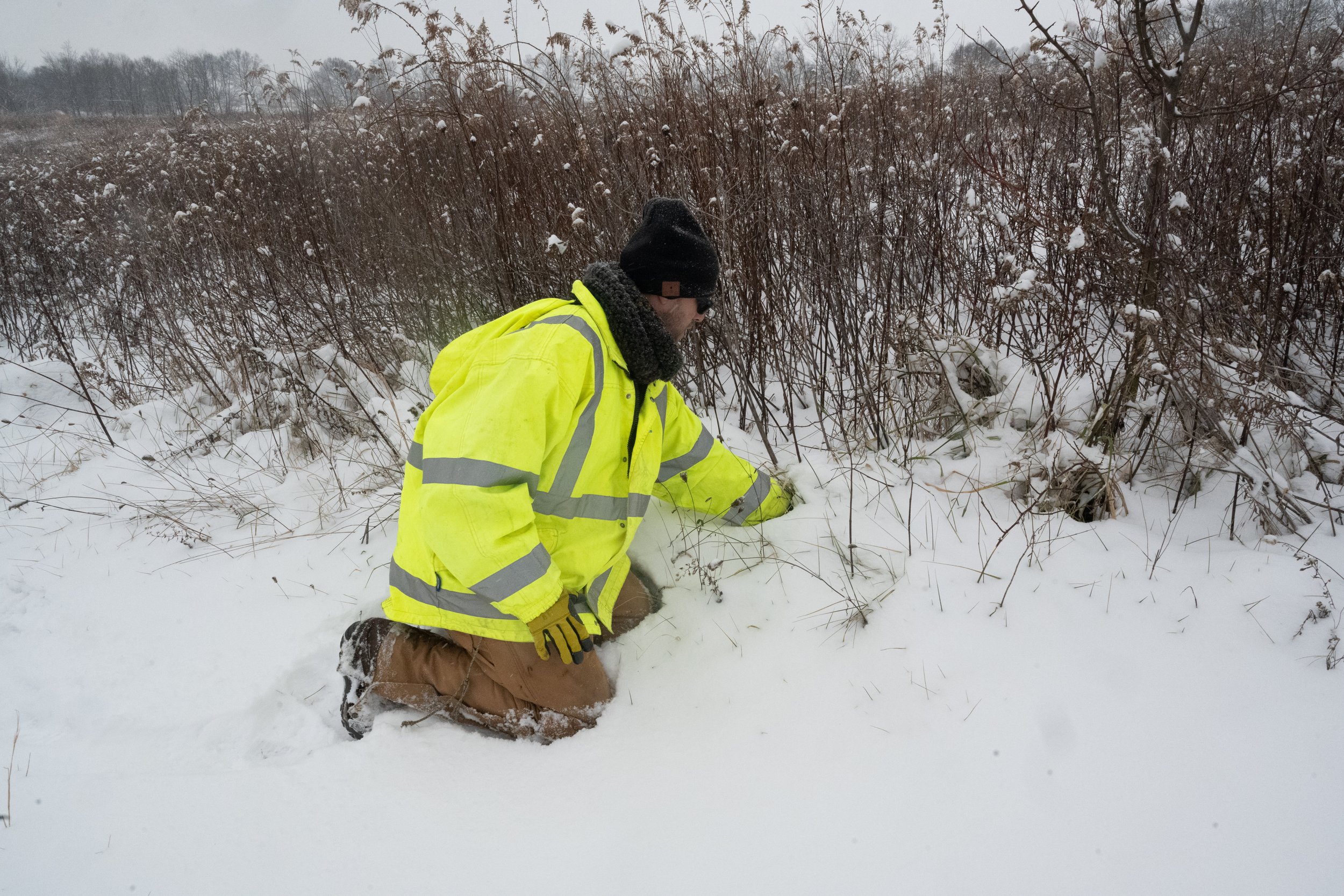
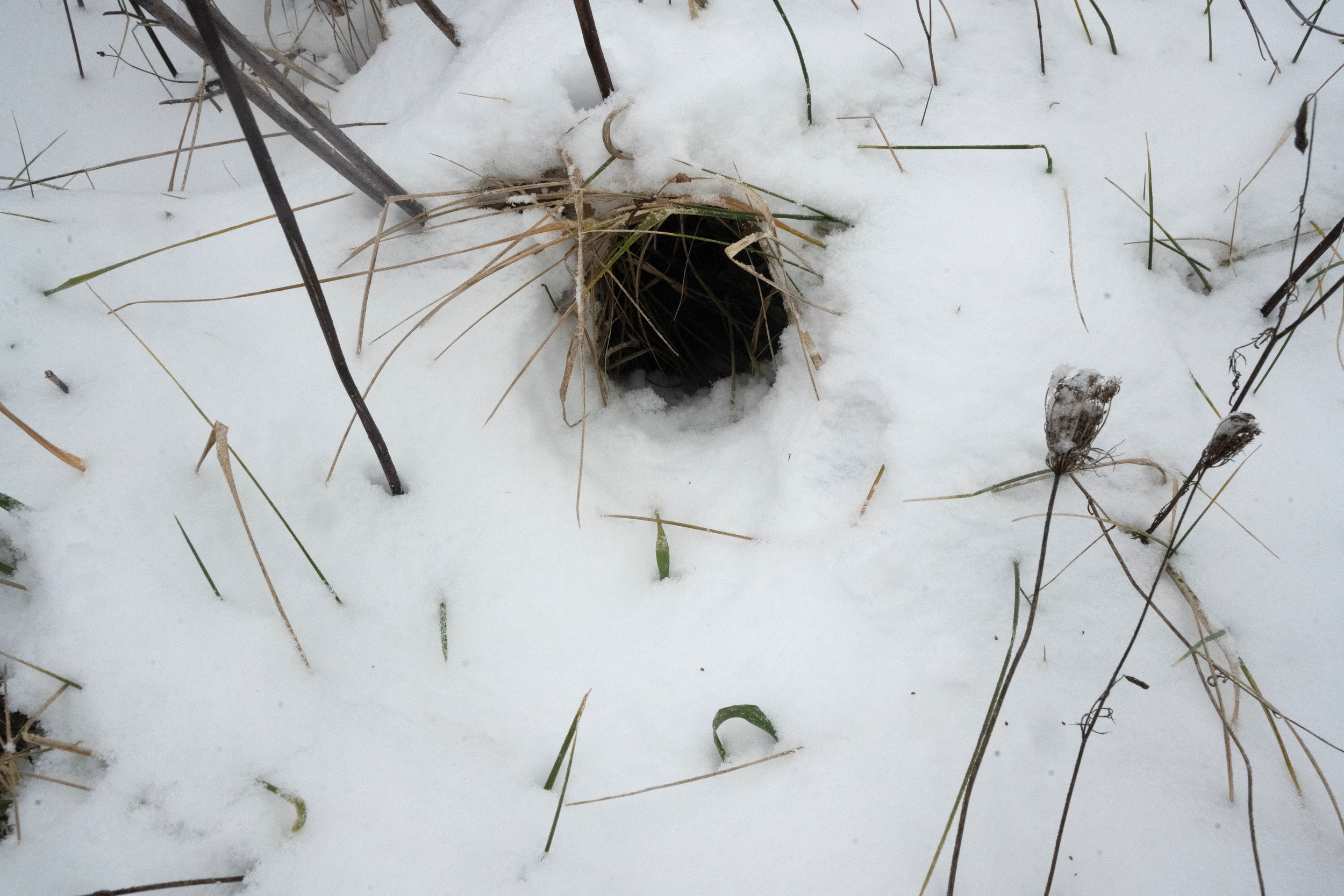
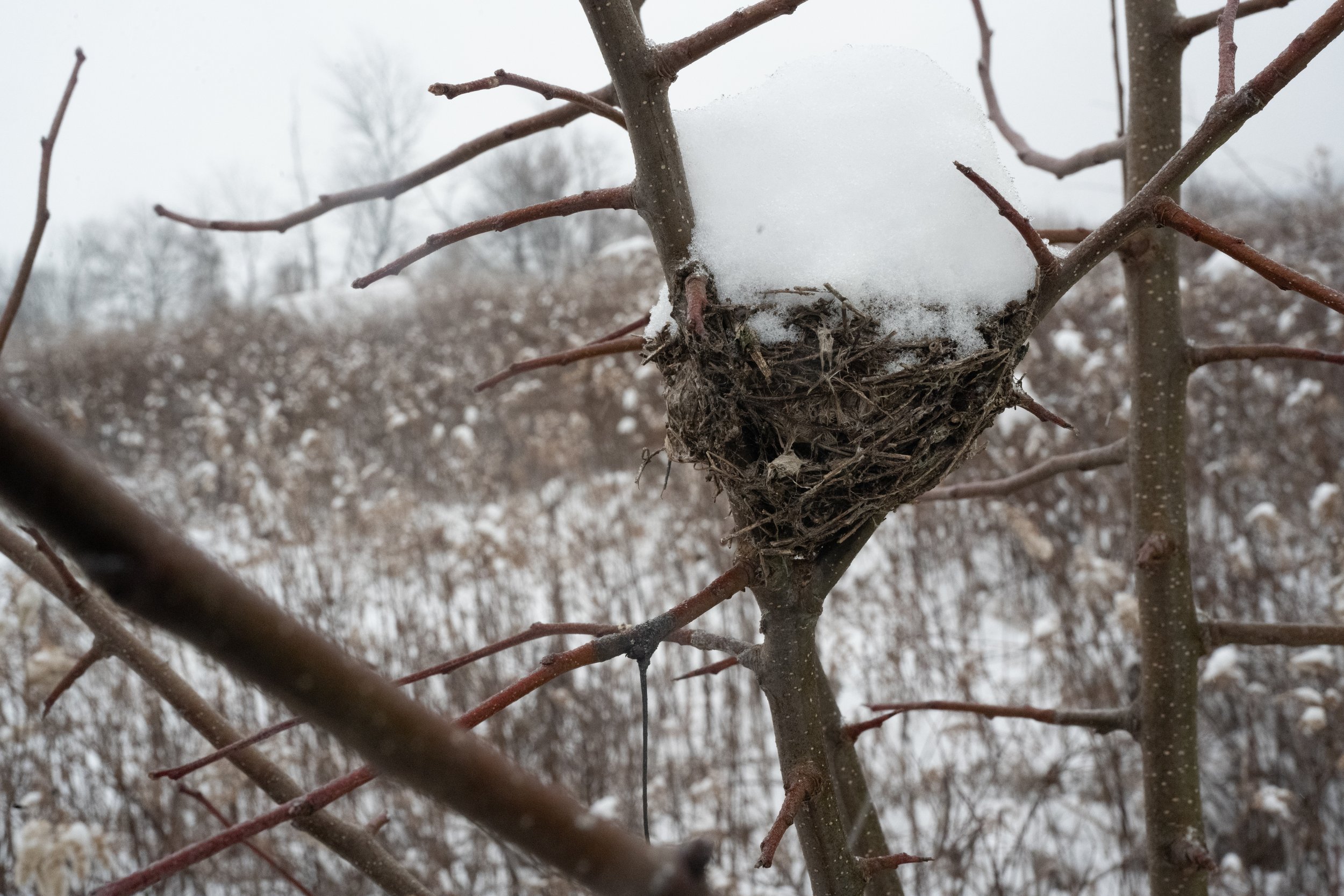
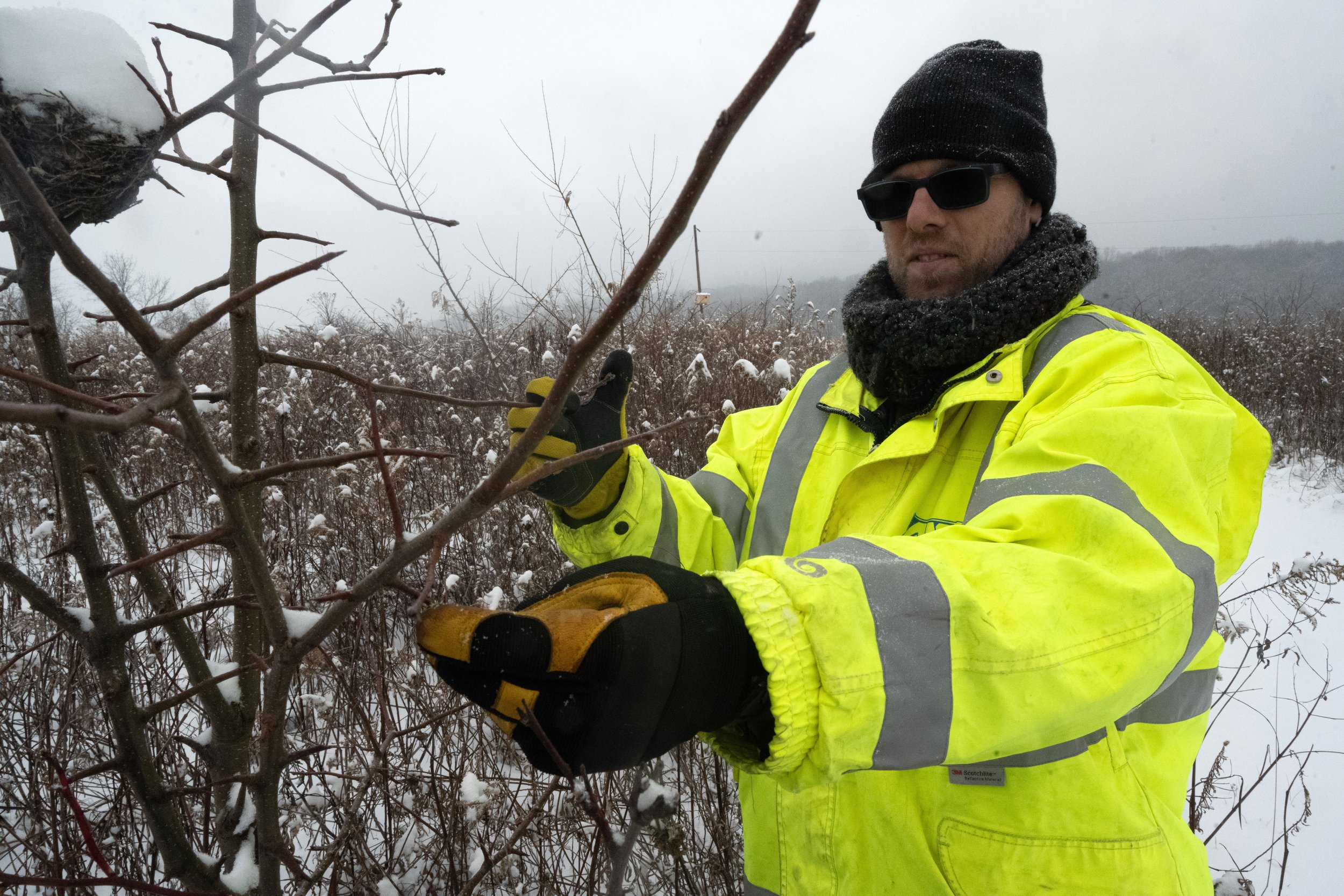
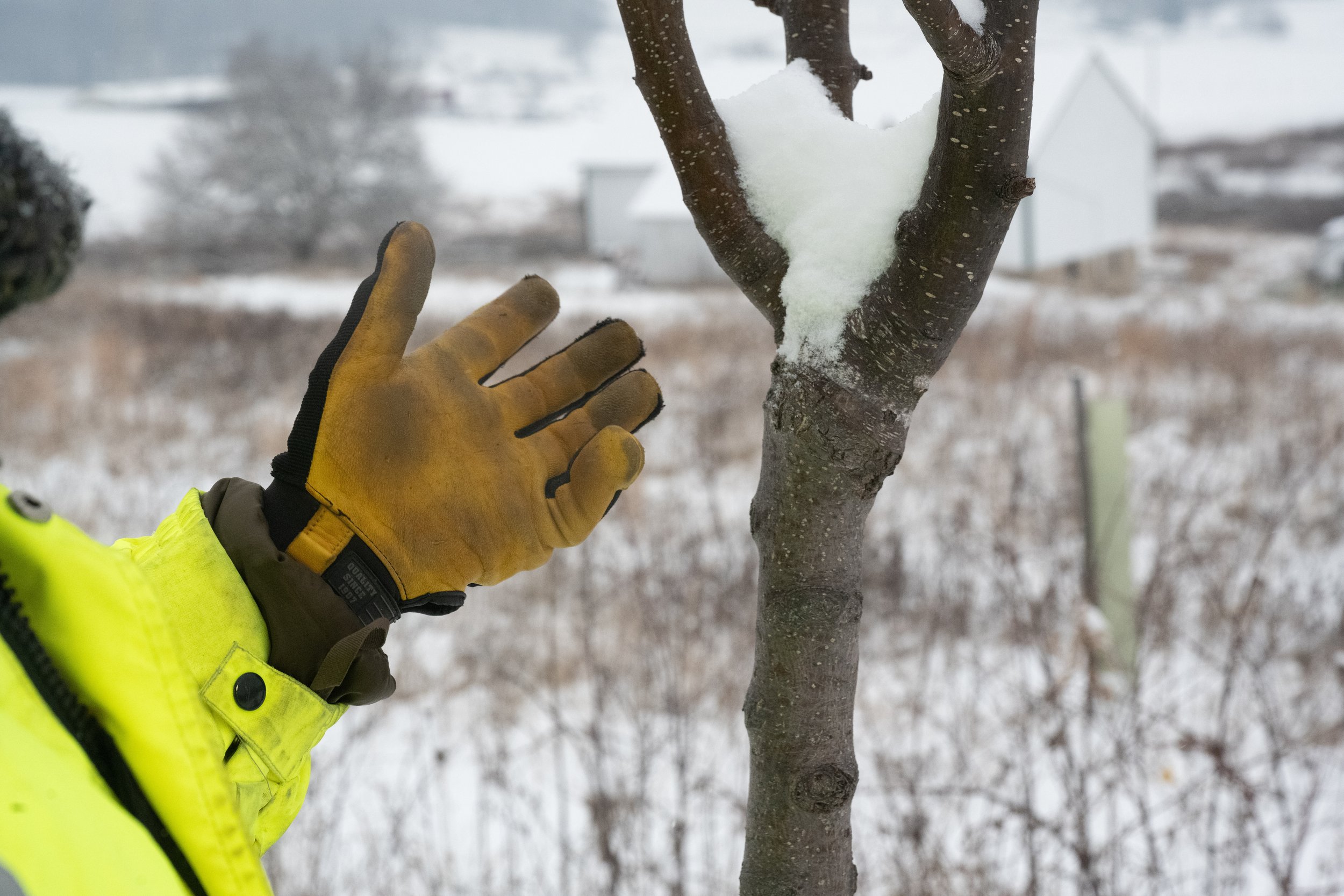
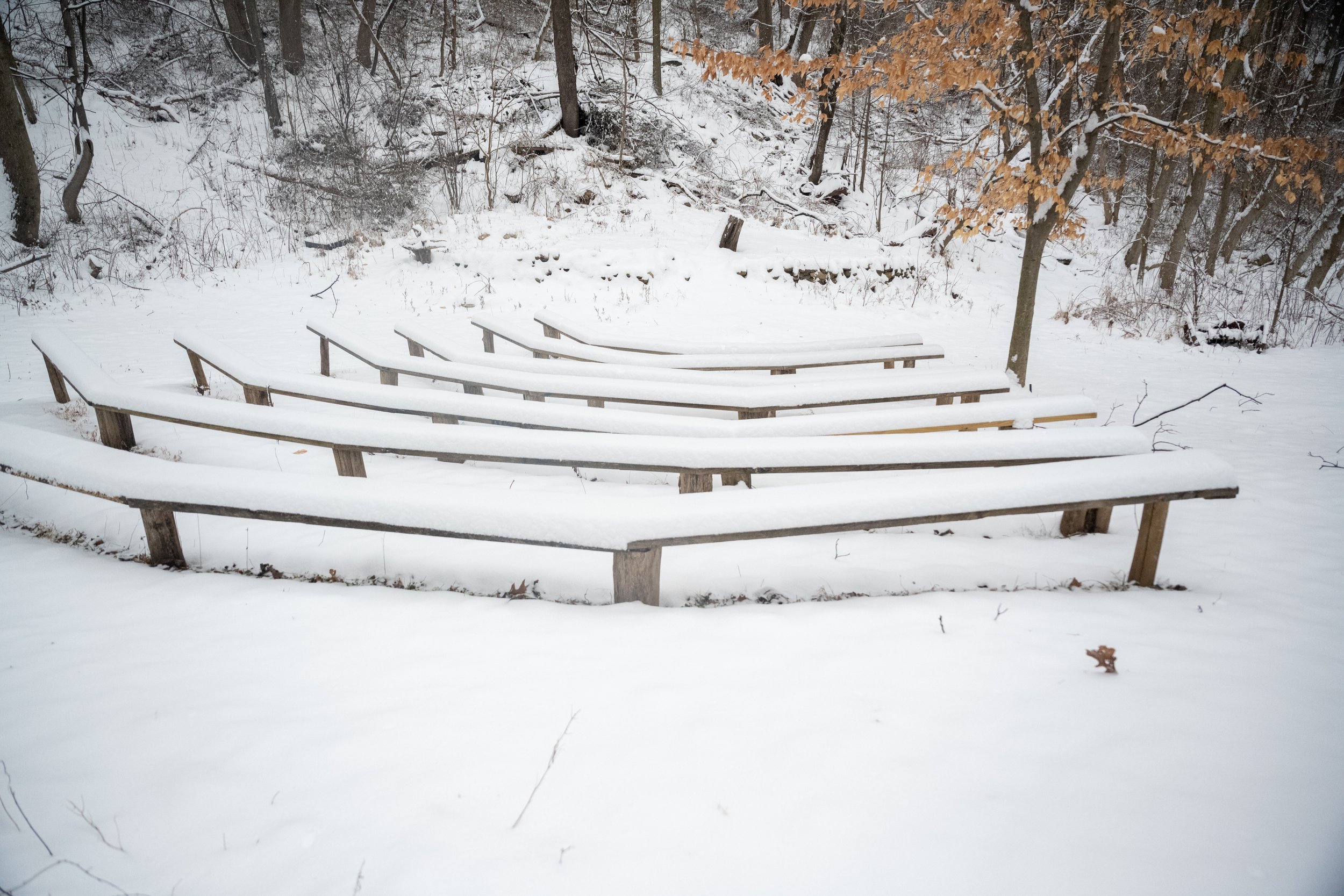
Cherish the intricate dance of life—the myriad species, the whispering leaves, and the unseen microbes. For in their existence lies our well-being and the legacy we leave for generations to come.
For More Information and to Connect:
The REED Center (visits available by appointment)
1932 Mountain Church Rd
Middletown MD 21769
Phone: 301-520-3431








